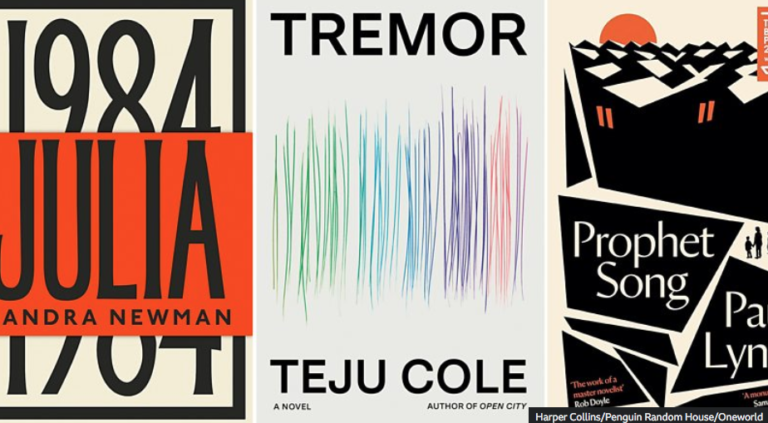From a reimagining of Orwell’s 1984 to the story of Renaissance painter Artemisia Gentileschi, these are BBC Culture’s picks of the best fiction of the year.
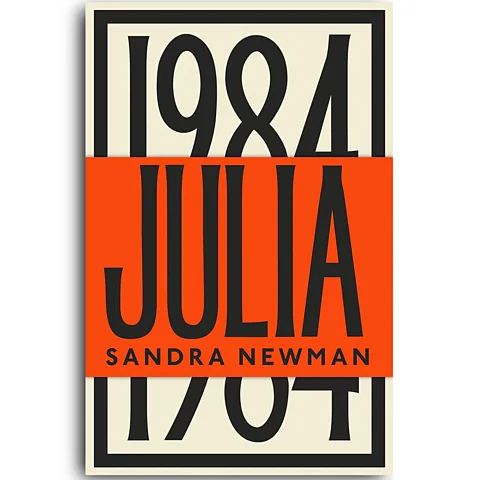 Harper Collins
Harper CollinsJulia by Sandra Newman
When the UK copyright for Orwell’s 1984 expired in 2021, US writer and academic Newman took on the ambitious task of reimagining the dystopian classic from the perspective of Julia. Her novel delves into the complex lives and relationships of women under the regime, answering long-held feminist criticisms that Orwell had failed to address in 1984. Rather than mere fan fiction, Julia achieves something more akin to Wide Sargasso Sea, Jean Rhys’s acclaimed 1966 prequel to Jane Eyre. Calling it “a masterpiece”, The Telegraph writes that Newman “remoulds Orwell’s characters into something truly original”, while The Guardian calls Julia “a complex and empathic vision that stands up well beside Orwell’s original”. (RL)
This Plague of Souls by Mike McCormack
As This Plague of Souls opens, the protagonist Nealon is returning to his family home, a farm in rural Ireland, after a long time away. The house is empty, and there is no sign of his wife or child, but there is a persistent caller on the phone. McCormack is the author of the Booker longlisted Solar Bones, and his most recent offering has been equally acclaimed. “The Irish master of tension returns,” writes John Self in The Times. “This Plague of Souls, a late entry for the most interesting novel of the year, is more straightforwardly expressed, but remains a fully-fledged tale of the unexpected.” The Scotsman says: “McCormack is a singular talent, lucid sentences locking into an eerie and unforgettable edifice. It has brutal physicality and arch metaphysics ” (LB)
Orbital by Samantha Harvey
Harvey’s slim novel takes place over the course of one day, in which six astronauts from around the world hover 250 miles above the Earth on the International Space Station. As they orbit the planet 16 times and witness 16 sunrises, Harvey observes their quotidian rituals and channels the strangeness of this existence. The New Yorker writes: “How might it feel to sleep while floating in space, to sleep while dimly aware that a mad earthly floor is spooling beneath you? Harvey’s prose has an instinct for a kind of exact magic.” The FT writes: “In contrast to the bleak apocalyptic tone of much contemporary climate fiction, Orbital’s luminous descriptions remind us of the beauty at stake when humanity plays fast and loose with our single, and singular, blue marble.” (RL)
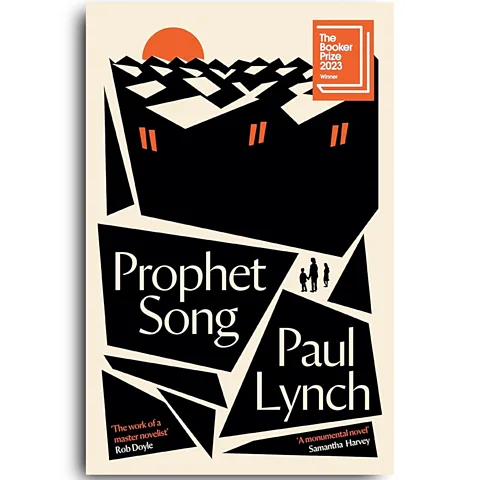 Oneworld
OneworldProphet Song by Paul Lynch
This year’s winner of the Booker Prize is set in a dystopian Ireland that is edging into authoritarian rule after the extreme right National Alliance party seizes control. Soon, civil liberties erode and civil war breaks out. Lynch “flinches from nothing”, says Esi Edugyan, the Booker’s chair of judges: “Lynch pulls off feats of language that are stunning to witness, he has the heart of a poet, using repetition and recurring motifs to create a visceral reading experience. This is a triumph of emotional storytelling, bracing and brave.” The Washington Post says: “It’s written in the grammar of dread. The sentences cascade from one to the next without so much as a moment’s breath.” (LB)
Study for Obedience by Sarah Bernstein
Shortlisted for the Booker Prize, Study for Obedience by Sarah Bernstein – one of Granta’s young British novelists of 2023 – tells the tale of a woman who has moved from her birthplace to a northern country to be a housekeeper for her brother, whose wife has left him. Soon after her arrival, a series of events unfolds – including a potato blight and collective bovine hysteria – and she begins to feel the locals’ hostility towards her grow. The Daily Telegraph says the novel is: “Beguiling and smart… Bernstein’s prose has a studied coolness, all concision and steady flow. Yet it develops a queasiness of tone as the narrator’s dealings with the townsfolk become a painful comedy.” The Observer describes Study for Obedience as “masterful”, and says it is written in “meticulous, measured” prose. (LB)
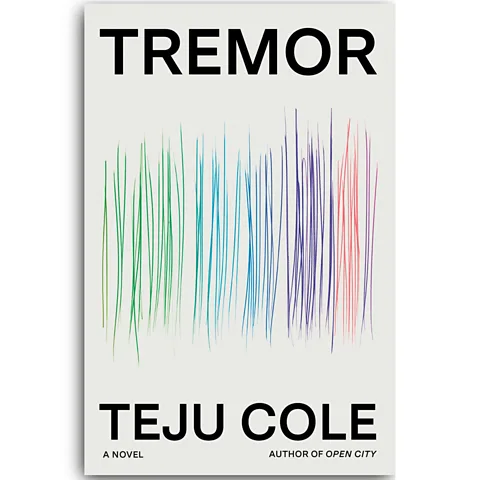 Penguin Random House
Penguin Random HouseTremor by Teju Cole
“To read Tremor,” writes The Telegraph, “is to… be greeted with a swathe of astonishing images, formal ingenuity and raw, metamorphic emotion.” The third novel from the writer of Every Day is for the Thief and Open City, Tremor follows Tunde who, like Cole, is a Nigeria-born professor of photography and talented photographer. As he travels from Massachusetts to Maine to Lagos, Tunde reflects on his life, art, literature, history and memory – and his relationship with his wife, Sadako. “A masterclass in flash-fiction portraitures,” writes The Guardian, “this is a book that widens and unsettles the horizons of our 21st-Century experience, with a vivid sense of the Earth-shaking tremors under the surface of our shared lives and cultures.” (RL)
Disobedient by Elizabeth Fremantle
“Dazzling” says The Times of Elizabeth Fremantle’s latest novel Disobedient, which tells the story of the great Renaissance painter Artemisia Gentileschi. Set in Rome in the 17th Century, it follows the story of Artemisia’s childhood and her dreams of becoming an artist, and then the event that would disrupt her life and see her put on trial. The Times continues: “Fremantle breathes new life into history. Artemisia is a powerful protagonist, and Disobedient is taut, fast-paced and as painterly as its heroine’s canvases.” AP News says: “The attention to detail – so necessary in a narrative filled with painters – is absolutely engrossing. Disobedient was everything I’d hoped for and so much more. Fremantle has immense talent and tells the story of an amazing and inspiring woman with wit and certainty.” (LB)
Blackouts by Justin Torres
Interweaving fact and fiction, Torres’s dazzling second novel won the 2023 National Book Award for fiction, whose judges cited it as “a novel of aesthetic complexity, multiplicity, and beauty”. Set in the desert in the confines of the Palace, a former asylum, a young protagonist known as “Nene” tends to a dying older man, Juan Gay. He bequeaths to Nene a project of queer history, a (real-life) book of sexology written by Jan Gay, a woman whose book was co-opted by medical professionals. “The supreme pleasure of the book is its slow obliteration of any firm idea of reality – a perfect metaphor for the delirious disorientation that comes with learning queer history as an adult,” writes The New York Times. “Torres articulates a blinding blizzard of hurt in these pages. Yet Nene and Juan give us and themselves much joy, too,” writes NPR. (RL)
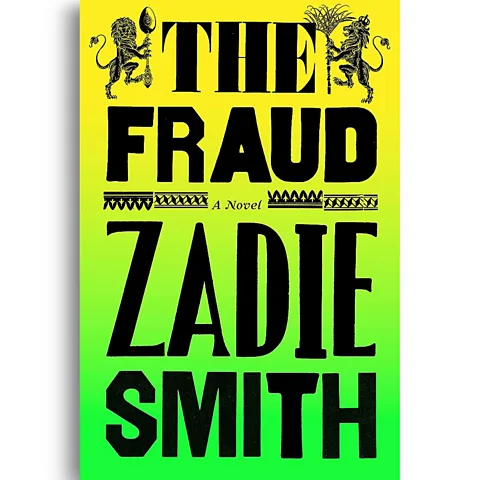 Penguin Random House
Penguin Random HouseThe Fraud by Zadie Smith
In her first historical novel, Zadie Smith examines 19th-Century colonialism, with several interwoven plots that take place over half a century. At the centre of the story is a real-life trial of a man claiming to be Sir Roger Tichborne, thought to have died at sea, and heir to a huge fortune. The trial is seen through the eyes of Eliza Touchet, with interludes depicting the life of Andrew Bogle, an older formerly enslaved man who is acting as a witness in the trial. It is an “exuberant” novel, says The Observer, and bears the author’s usual trademarks: “the boisterous narrative intelligence; the ear for dialogue; the chronic absence of boring sentences”. There is also a lightness of touch: “Every few pages I was struck by how light the novel feels, despite its length and epic themes. The short chapters glide tellingly between decades and scenes.” The Conversation describes The Fraud as “a stunning, well-studied examination of Victorian colonial England,” adding that “Smith is expertly able to interweave moments of levity and humour into a book that deals with some heaviness… Historical fiction suits her”. (LB)
North Woods by Daniel Mason
US author and doctor Mason, who published his first book, The Piano Tuner (2002) while still at medical school, is now an acclaimed writer of historical fiction. His sixth novel – which explores four centuries of history through a house and its inhabitants on a small patch of New England land – has received rapturous reviews for its virtuosity and form-bending experimentation. “Daniel Mason’s latest novel is one of those rare books that truly deserves the description ‘spellbinding'”, writes The Observer, while The New York Times calls it “eccentric and exhilarating”. (RL)
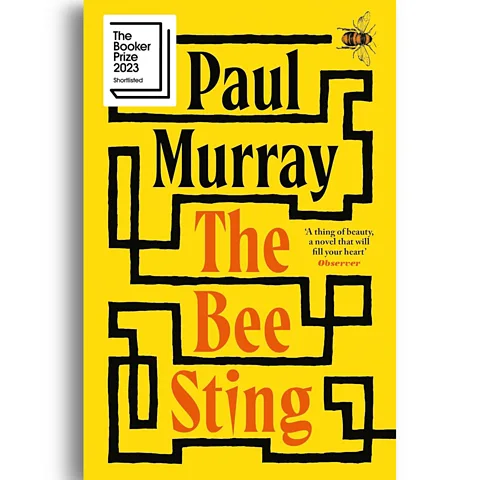 Penguin Random House
Penguin Random HouseThe Bee Sting by Paul Murphy
Paul Murray – best known for his acclaimed 2010 novel Skippy Dies – returns with a “wildly entertaining, completely convincing, and deeply moving family saga,” says LitHub. The story is “told with such deft management of time and mystery and perspective that I defy anyone not to get completely swept away by it”. Blending comedy and drama, the bumper-sized book centres around two well-to-do rural Irish families, whose unfolding calamities are paralleled in a slow-building ecological disaster. The story is told from different family members’ points of view – with each perspective giving further insights and revelations. It’s a “tragicomic triumph”, says The Guardian. “With The Bee Sting, Murray is triumphantly back on home turf – troubled adolescents, regretful adults, secrets signposted and exquisitely revealed, each line soaked in irony ranging from the gentle to the savage.” (LB)
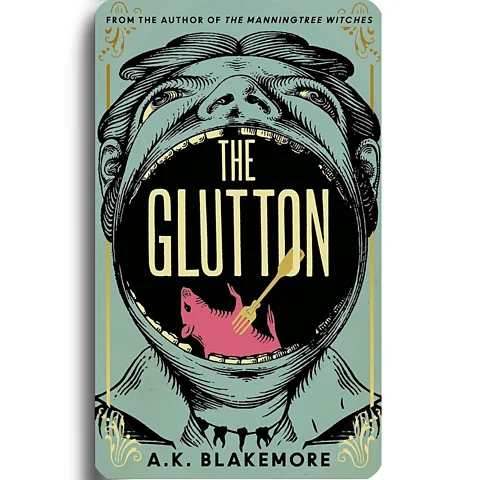 Granta Books
Granta BooksThe Glutton by AK Blakemore
The true story of the French Revolution-era peasant-turned-performer, Tarare, who swallowed just about anything – including rats, cats and corks – for money is the thrilling premise of The Glutton, the second novel from British poet AK Blakemore. Her first, The Manningtree Witches (2021) which fictionalised the 17th-Century Essex witch trials, was shortlisted for the Costa Prize. With Tarare’s wild and poignant tale and Blakemore’s poetic prose, The Glutton is “one of the most remarkable novels of the year,” according to The Guardian. “[Blakemore] plants our faces so closely against the glass of the past that it feels at times unbearably vivid” writes The Evening Standard. (RL)
Tom Lake by Ann Patchett
The author of The Dutch House and Bel Canto is back with a new novel Tom Lake. When Lara’s three twenty-something daughters return home to northern Michigan during the pandemic, the four women set about picking cherries from the family orchard. While working, Lara recalls the story of Peter Duke, a now famous actor, with whom she shared a romance decades before at a theatre company called Tom Lake. As a result, her daughters examine their own lives – and are forced to reconsider everything they thought they knew. “Tom Lake is a fascinating story beautifully told,” says the New York Journal of Books, and the novel’s structure “is wonderfully measured, as Patchett weaves the fine details of dual timelines together”. The Washington Post praisesthe book’s “remarkable warmth”, and Pratchett’s “wisdom about love” – Tom Lake, it says, “reminds us why she’s beloved”. (LB)
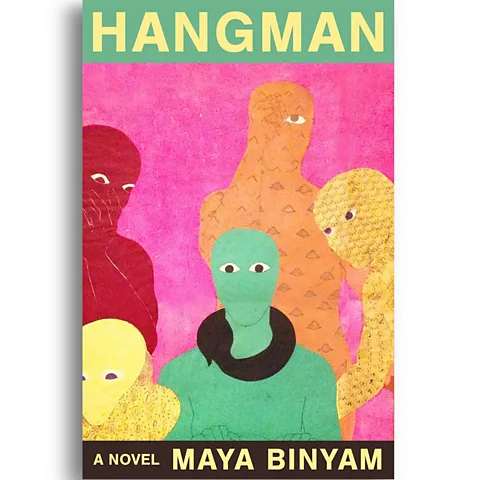 Farrar, Straus and Giroux
Farrar, Straus and GirouxHangman by Maya Binyam
The nameless narrator of Hangman is an émigré who is returning, after 26 years away, to his place of birth in sub-Saharan Africa in order to visit his sick brother. His travels turn into a series of confrontations with the vestiges of the life that he left behind, and an exploration of what is and isn’t expected of migrants and their stories. “The real guesswork concerns the narrator’s relationship to his homeland, a place all but denatured by his benumbed observations,” says The New Yorker. Hangman is “a slim, stark, and captivatingly enigmatic debut novel” it adds, praising Binyam’s “mordant humour”. The humanity of the novel’s protagonist, says Vogue, is all the more keenly felt because of what the author leaves out: “She weaves in more than enough prosaic depth to make a 200-page chronicle of exile, diaspora, belonging, and homegoing feel urgent and emotionally resonant.” (LB)
The Wren, The Wren by Anne Enright
Dysfunctional families, art as illusion and generational trauma are the subjects explored in The Wren, The Wren, the eighth novel from the author of The Gathering (2007) and The Green Road (2015). With the precision of “a skilled weaver”, Enright’s narrative is relayed by three contrasting voices, the troubled twenty-something Nell, her middle-aged mother Carmel and Carmel’s father, the selfish and self-aggrandising poet Phil McDaragh, whose portrayal, writes The Guardian, is: “a ferocious sendup of the Famous Irish Poet”. The New York Times praises the novel’s humour and sensitivity, calling The Wren, The Wren, “a powerful, thoughtful book by one of the great living writers on family”, while The FT calls it “restless and deeply gratifying”. (RL)
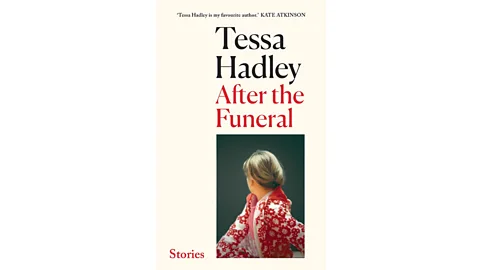 Penguin Random House
Penguin Random HouseAfter the Funeral by Tessa Hadley
“It is hard to imagine stories more skilfully paced and polished than these,” writes The Observer of After the Funeral, praising the author Tessa Hadley’s ability to create atmospheres that are “relatable, sympathetic, complicated”. In the acclaimed British writer’s fourth short story collection, a divorced couple bump into each other on the Tube; a teenager on holiday with her parents rebels; three middle-aged sisters reconvene uncomfortably at their seaside childhood home. These characters, as fans of Hadley’s work will recognise, are often “mature survivors of the 1970s or children of those survivors… comfortably off, less comfortably self-aware”, writes The Guardian, and Hadley is a master of complex – but unspoken – family dynamics, particularly between women. The Washington Post calls After the Funeral “a revelation for aficionados of the form, as vibrant and knowing as the best of Hadley’s celebrated career.” (RL)
August Blue by Deborah Levy
Acclaimed concert pianist Elsa M Anderson – a former child prodigy now in her 30s – walks off stage mid-performance in Vienna. Next, we meet her at an Athens flea market as she watches another woman, apparently her doppelganger, buying some mechanical horse figurines. There follows Elsa’s strange journey across Europe, shadowed by this enigmatic woman. The Scotsman says of the novel: “Although it is a work of scathing intelligence, it packs a pianissimo emotional punch at the end.” It is a “seductive” novel, according to The Times, and marks “a puzzling, pleasurable return” for the author. August Blue is “exhilaratingly surreal” says iNews and “holds the remarkable balancing act that is key to Levy’s writing: perfect precision at the sentence level combined with a dedication to exploring the slipperiness of reality”, noting the author’s “knack for masterful innovation unlike anything else in English today.” (LB)
The East Indian by Brinda Charry
In this “fascinating” historical novel – a New York Times summer read – Charry sets out to document the little-known story of the first Indian immigrant to the US, inspired by the brief mention of a servant in historical records of 1600s Virginia. Tony is an orphaned teenager who is first sent to Britain before being kidnapped and sold to work on a tobacco plantation in the New World. Through Tony and the other characters’ stories, Charry – a historian – charts the 17th-Century roots of mass immigration and colonialisation, in a “sweeping, coming-of-age tale that’s more than a little Dickensian,” writes The Guardian. “Charry’s most remarkable feat with this novel,” writes NPR, “is that she wears her enormous learning and research lightly throughout.” (RL)
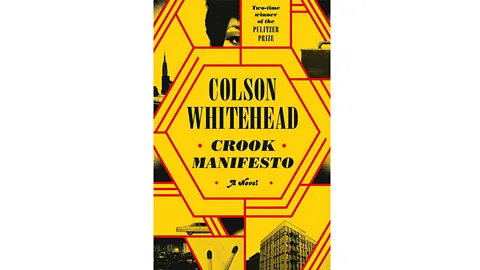 Penguin Random House
Penguin Random HouseCrook Manifesto by Colson Whitehead
Two-time Pulitzer-winning author Colson Whitehead’s new novel continues the saga of crooked furniture salesman Ray Carney, who readers may know from the acclaimed 2021 novel Harlem Shuffle. Set in a chaotic 1970s Harlem, the three-part novel follows Ray as he attempts to stay out of trouble and negotiate a city running on a combination of cronyism, corruption, ego, threats and pride. “Like its predecessor, Manifesto is both deceptively substantive and sneakily funny,” says The LA Times. “There is a great deal of love in the author’s portrait of his native city, his gimlet-eyed observations.” The Guardian praises the “compelling energy of a crime thriller and the sharp wit of social satire”. Meanwhile, The Telegraph reviewer sums up: “Crook Manifesto gave me something I had missed in recent reading: joy.” (LB)
Mrs S by K Patrick
An unnamed Australian 22-year-old “matron” arrives at an elite boarding school for girls sometime in the early 1990s. She soon becomes infatuated with Mrs S – the headmaster’s self-possessed wife; a passionate yearning and steamy affair ensue in a journey of sexuality and self-discovery. The Observer describes Mrs S as “a striking queer romance in which lust yields subtle revelations about sexual power and selfhood,” describing Glasgow author K Patrick (one of Granta’s best new British novelists) as a “distinctive new talent”. The New York Times praises “the sensuality of Patrick’s narrative,” while The TLS observes, “The intimacy and suppleness of Patrick’s writing mark it out from the stripped-clean default of much contemporary fiction.” (RL)
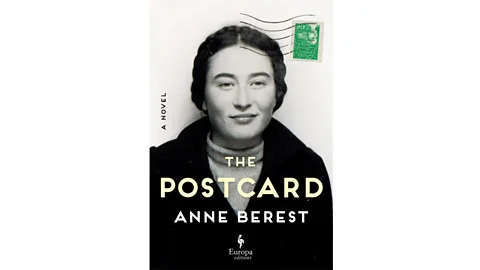 Europa Editions
Europa EditionsThe Postcard by Anne Berest (translated by Tina Kover)
An anonymous postcard leads to a journey of discovery in Anne Berest’s The Postcard, the tale of a Jewish family devastated by the Holocaust, as well as a portrait of 20th-Century Parisian artistic and intellectual life. The winner of the prestigious French book award, the Choix Goncourt Prize, it is “powerful, meticulously imagined,” says the New York Times Book Review, and “takes its readers on a deep dive into one Jewish family’s history, and, inextricably, into the devastating history of the Holocaust in France”. The novel is, says Library Journal, “not only a significant contribution to our understanding of the Holocaust but a moving reflection on loss, memory, and the past, in equal measures heart-warming and heartrending”. The Washington Post describes The Postcard as “a powerful exploration of family trauma… transmitted in the womb or down the generations.” (LB)
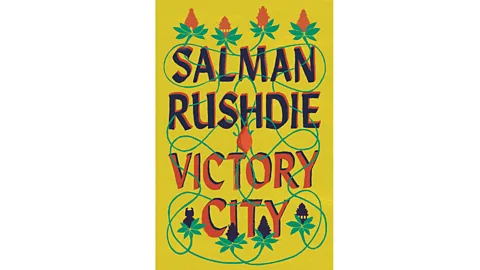 Penguin
PenguinVictory City by Salman Rushdie
The 15th novel from the Booker Prize-winning author of Midnight’s Children, The Satanic Verses and Quichotte, Victory City, described by The New Yorker as “immensely enjoyable”, is an era-spanning epic that begins in 14th-Century southern India. Its heroine is a grief-stricken nine-year-old girl, Pampa Kampana, who is instructed by a goddess to create equality for women in a patriarchal world. Kampana’s fortune, over centuries, becomes interwoven with that of the great empire of Bisnaga, the “victory city” of the title. In this novel, Rushdie has created “an alternative Mahabharata”, writes The Guardian, “an elaborate founding myth from the bare bones of history”. (RL)
Birnam Wood by Eleanor Catton
Eleanor Catton won the Booker Prize in 2013 for her novel The Luminaries, and the New Zealand author’s latest offering, witty thriller Birnam Wood, has also been highly acclaimed. Eco-activism meets staggering affluence when the young members of an environmental rights group end up being entangled with a billionaire drone manufacturer. “Catton is not just a master at spinning a web of competing philosophies, ” says Vogue.com. “Her characters are deeply flawed but you can’t help but root for them.” The Guardian praises Catton as a “novelist of lavish technical gifts who addresses herself to the world, broadly and richly conceived.” Birnam Wood is, says the review, “another virtuoso performance: elaborately plotted, richly conceived, enormously readable”. (LB)
Shy by Max Porter
From the author of Lanny (2019) and The Death of Francis Bacon (2021), Porter’s fourth book is another slight volume of experimental, poetic prose. Its hero is 15-year-old Shy, who we encounter as he walks away from Last Chance, a home for troubled youth, with his pockets full of rocks. Shy is Porter’s best, says The Telegraph, since his acclaimed 2015 debut, Grief is a Thing with Feathers, “an act of humanity and grace, heightened by its distinctive form and artistry.” According to the iNewspaper, it is “a dazzling bolt of prose in the long night of our times”. (RL)
Pineapple Street by Jenny Jackson
“Marvellous – clever, funny and brilliantly well observed,” is how India Knight describes Pineapple Street in The Sunday Times. The debut novel by Jenny Jackson explores generational wealth and privilege in forensic detail, following three women who are part of the super-wealthy Stockton clan, in leafy Brooklyn Heights, New York. One was born into the wealth, one has married into it, and one wants to give it away. “What is impressive about the work is that it treats rich people as fallible human beings,” says Medium. “Although these characters are imperfect, you’ll fall in love with them anyway and you’ll want to know how they turn out once the end of the book is reached.” (LB)
Maame by Jessica George
Jessica George’s debut novel became an instant NYT bestseller when it was published earlier this year; favourable comparisons have been made with another publishing sensation, Candice Carty-Williams’s Queenie, from 2019. Maddie, nicknamed “Maame”, is a twenty-something Londoner with Ghanaian parents, who forgoes the regular trials of a 25-year-old existence as the primary caregiver to her father, who has Parkinson’s. A coming-of-age story about family, relationships and identity, Maame, writes The Washington Post, “isn’t always an easy story to read, but is always told with grace and compassion”. The New York Times says: “George shows the details and scope of life with such confidence and joie de vivre, it’s easy to forget she’s a first-time novelist.” (RL)
 Random House
Random HouseThe Survivalists by Kashana Cauley
In the Survivalists, Aretha, a lawyer, moves in with her coffee-entrepreneur boyfriend, Aaron, and his doomsday-prepping housemates. What follows is a half-joking exploration of capitalism, gun ownership, and what it takes to survive in the modern world as a black American. “Learn her name, because Cauley is one of the funniest writers at work today, period,” says the Los Angeles Times. Vulture agrees, describing Cauley as “one of the smartest and funniest writers working today, and this novel is a chance for fans to spend even more time with her cutting critiques of the flaws in American culture.” (LB)
Wandering Souls by Cecile Pin
Based on her own mother’s story, and interweaving real historical events with fiction, Cecile Pin’s debut novel begins in 1978, three years after the last US troops have left Vietnam. Young orphan siblings Anh, Thanh and Minh flee their village, first to Hong Kong, making their way as refugees towards the uninviting landscape of Thatcher’s Britain. Their journey is accompanied by the voice of their younger brother, Dao, a lost soul who speaks from the hinterland between the dead and the living. Wandering Souls is “subtle and gripping”, writes the LA Times, while the iNewspaper says: “this is a powerful and timely debut about seeking asylum; about what life is when it is ripped from its origins, and how happiness and identity can be found again on foreign shores.” (RL)
The Garnett Girls by Georgina Moore
Set on the UK’s Isle of Wight in a beloved but crumbling family home, Sandcove, three very different sisters and their unconventional mother tackle life and long-held family secrets. The Sunday Times best-selling debut novel by Georgina Moore explores whether or not children can ever truly be free of the mistakes their parents make. “Each of the main characters is flawed yet relatable,” says The Independent, “and the family dynamics between the strong women are portrayed perfectly by Moore. An immersive novel which leaves the reader feeling they have become part of the family.” It’s a confident debut, according to The Observer. “With Moore’s evocative prose it’s easy to see why The Garnett Girls is being likened to works by Penny Vincenzi.” (LB)
Old Babes in the Wood by Margaret Atwood
This 15-strong short-story collection is Atwood’s first publication since The Testaments. Divided into three parts, it is dedicated in part to Atwood’s partner, Graeme Gibson, who died in 2019; scenes from the marriage of Tig and Nell sandwich a disparate bunch of tales that encompass everything from aliens to pandemics. Old Babes in the Wood is “a gripping read,” writes the FT, which highlights “themes that are always at the heart of Atwood’s work: the haunting presence of traumatic histories, profound imbalances of power and opportunity in the world today, and society’s darkest possible futures”. The Guardian says: “There are chips and fragments of lives, full of sass and sadness”. (RL)
Old God’s Time by Sebastian Barry
When he’s faced with the past he would prefer to forget, retired policeman Tom’s life is thrown into further confusion. In the Irish author’s ninth novel, Barry explores how the effects of violence and abuse reverberate across generations. Old God’s Time is a “reckoning with violated innocence,” says the Irish Independent. “The familiar story of the crimes of church and state is told in a fresh and spectacular way.” Meanwhile, iNews describes the book as a “profound state-of-Ireland novel”. Barry, it says, is “a master storyteller… exploring the fluid border between the real and the unreal, and its relation to trauma”. (LB)
This Other Eden by Paul Harding
This is New Englander Harding’s third novel: following Enon (2013) and his 2009 debut, Tinkers, for which he won the Pulitzer Prize. It is in This Other Eden, though, “that Harding’s gifts have found their fullest expression”, writes The Observer, praising “the depth of Harding’s sentences, their breathless angelic light.” Inspired by historical events, the story is set on Apple Island in early-20th Century Maine, which the mixed-race Honey family have called home for generations, until they are abruptly cast off the island. This Other Eden, writes The New York Times, is “a novel that is both devastating and meditative.” (RL)
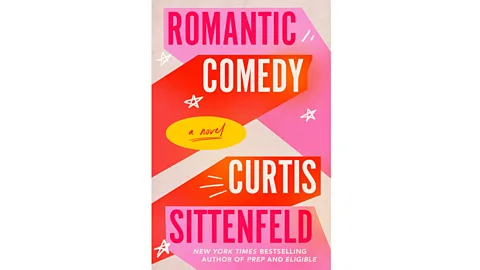 Random House
Random HouseRomantic Comedy by Curtis Sittenfeld
In this humorous take on Hollywood romcoms, Sally Milz is a comedy TV script writer who finds herself in an unlikely relationship that skewers all her assumptions about romance. Curtis Sittenfeld is the author of the hit novels American Wife and Rodham. The author, says The Guardian, “isn’t above giving readers what they want – and that’s exactly what she does in this affable, intelligently crafted tale of work and love… Throughout, the novel’s command of structure, pace and dialogue is faultless.” The Washington Post points to Sittenfeld’s “quick-paced prose”, and praises how vividly she depicts everyday life at the TV station where her protagonist works. “The work becomes terrifically exciting and reminds us how rarely we get to see what people actually do at the office.” (LB)
If you would like to comment on this story or anything else you have seen on BBC Culture, head over to our Facebook page or message us on Twitter.
And if you liked this story, sign up for the weekly bbc.com features newsletter, called The Essential List. A handpicked selection of stories from BBC Future, Culture, Worklife and Travel, delivered to your inbox every Friday.



